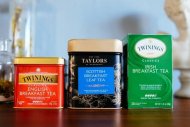 English breakfast, Irish breakfast, Scottish breakfast ... why are they served at breakfast, and is there really any difference between them?
English breakfast, Irish breakfast, Scottish breakfast ... why are they served at breakfast, and is there really any difference between them?
What is breakfast tea?
Breakfast teas are black tea blends intended to accompany a hearty, rich morning meal (think of the full English breakfast or fry-up) and are therefore more robust than afternoon tea blends. Because they are so strong, breakfast teas go well with milk. Breakfast tea blends made with Assam tea tend to have higher caffeine levels.
English, Irish, Scottish: What's the difference?
English breakfast tea, Sanchez explains, would originally have been a China black tea. Over time tea blenders incorporated teas grown in India and Sri Lanka as well as Africa and Indonesia. "The English started importing Chinese tea in the 17th century and then it really kicked into gear in the 18th century. For all intents and purposes the first English breakfast tea was a China congou tea, " says Sanchez.
 "Then, during the Opium Wars, China imposed an embargo on tea. Around the same time, the British East India Company started producing tea in Assam, India. For awhile the old stocks of Chinese tea were dwindling and the new stocks of Indian tea started coming in, and they were blended together. Jump ahead to the end of the 19th century and tea was beginning to be produced in Ceylon (now Sri Lanka). You started to have a stronger and stronger Ceylon component in English breakfast tea."
"Then, during the Opium Wars, China imposed an embargo on tea. Around the same time, the British East India Company started producing tea in Assam, India. For awhile the old stocks of Chinese tea were dwindling and the new stocks of Indian tea started coming in, and they were blended together. Jump ahead to the end of the 19th century and tea was beginning to be produced in Ceylon (now Sri Lanka). You started to have a stronger and stronger Ceylon component in English breakfast tea."
Irish breakfast tea has a strong Assam component, which gives it a more robust, malty flavor and reddish color. "My theory is that tea must have been growing in popularity in Ireland around the time that the British East India Company was producing tea in Assam, " says Sanchez.
Source: www.thekitchn.com

|
Twinings Tea, English Breakfast, 100 Count, 7.05 oz Grocery (Twinnings)
|

|
Twinings English Breakfast Tea, Tea Bags, 50-Count Boxes (Pack of 6) Grocery (Twinnings)
|

|
Twinings Tea, Decaf Black Tea, English Breakfast, 20 Count (Pack of 6) Grocery (Twinnings)
|
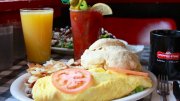





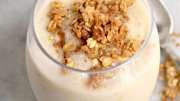
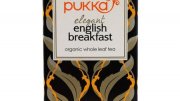

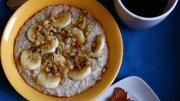















The Honourable Evelyn Boscawen, son of Lord Falmouth, hails from stock which takes the age-old ritual of tea drinking awfully seriously.